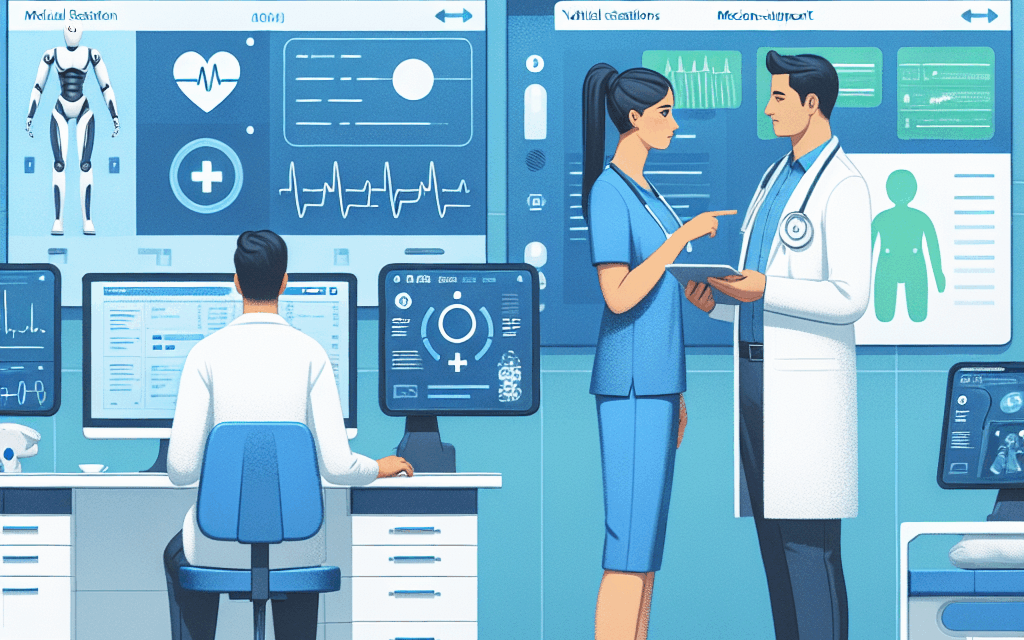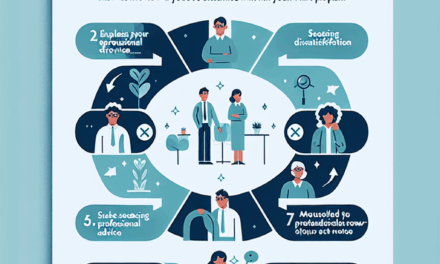Enhancing Patient Care Through AI Support
The integration of Artificial Intelligence (AI) in healthcare is revolutionizing patient care, offering innovative solutions that enhance the quality, efficiency, and accessibility of medical services. As healthcare systems worldwide grapple with increasing patient demands and limited resources, AI emerges as a powerful ally in addressing these challenges. This article explores the multifaceted role of AI in enhancing patient care, focusing on five key areas: predictive analytics, personalized medicine, telemedicine, administrative efficiency, and patient engagement.
1. Predictive Analytics: Anticipating Patient Needs
Predictive analytics involves using historical data, statistical algorithms, and machine learning techniques to identify the likelihood of future outcomes. In healthcare, this means predicting patient needs, potential health risks, and treatment outcomes, which can significantly enhance patient care.
One of the most compelling applications of predictive analytics is in the management of chronic diseases. For instance, AI algorithms can analyze data from electronic health records (EHRs) to identify patients at high risk of complications from conditions like diabetes or heart disease. By flagging these patients, healthcare providers can intervene early, offering tailored treatment plans that can prevent hospitalizations and improve overall health outcomes.
Case studies illustrate the effectiveness of predictive analytics in real-world settings. A notable example is the use of AI by Mount Sinai Health System in New York, which developed a predictive model to identify patients at risk of readmission within 30 days of discharge. By analyzing various data points, including demographics, clinical history, and social determinants of health, the model achieved an impressive accuracy rate, allowing healthcare providers to implement targeted interventions that reduced readmission rates by 20%.
Moreover, predictive analytics can enhance population health management by identifying trends and patterns within specific demographics. For instance, AI can analyze data from various sources, including social media, to gauge community health trends and inform public health initiatives. This proactive approach not only improves individual patient care but also contributes to the overall health of populations.
- Improved chronic disease management through early intervention.
- Reduction in hospital readmission rates via targeted care plans.
- Enhanced public health initiatives through data-driven insights.
In summary, predictive analytics serves as a cornerstone of AI in healthcare, enabling providers to anticipate patient needs and tailor interventions accordingly. This proactive approach not only enhances individual patient care but also contributes to broader public health goals.
2. Personalized Medicine: Tailoring Treatments to Individual Patients
Personalized medicine, often referred to as precision medicine, leverages genetic, environmental, and lifestyle factors to tailor medical treatments to individual patients. AI plays a crucial role in this field by analyzing vast amounts of data to identify the most effective treatment options for specific patient profiles.
One of the most significant advancements in personalized medicine is the use of AI in genomics. By analyzing genetic data, AI algorithms can identify mutations and variations that may influence a patient’s response to certain medications. For example, in oncology, AI can help determine which cancer treatments are likely to be most effective based on a patient’s genetic makeup. This approach not only improves treatment efficacy but also minimizes the risk of adverse effects associated with ineffective therapies.
A case study highlighting the impact of AI in personalized medicine is the work done by Tempus, a technology company that uses AI to analyze clinical and molecular data to help oncologists make more informed treatment decisions. By integrating genomic data with clinical outcomes, Tempus has enabled healthcare providers to identify targeted therapies for cancer patients, leading to improved survival rates and better quality of life.
Furthermore, AI can assist in predicting how patients will respond to specific treatments based on their unique characteristics. For instance, machine learning algorithms can analyze data from clinical trials to identify patterns that indicate which patient populations are likely to benefit from particular therapies. This capability not only enhances treatment outcomes but also streamlines the drug development process by identifying promising candidates for clinical trials.
- Enhanced treatment efficacy through genetic analysis.
- Minimized adverse effects by tailoring therapies to individual profiles.
- Streamlined drug development via predictive modeling.
In conclusion, personalized medicine powered by AI represents a paradigm shift in healthcare, moving away from a one-size-fits-all approach to a more tailored strategy that considers the unique characteristics of each patient. This shift not only improves patient outcomes but also fosters a more efficient healthcare system.
3. Telemedicine: Expanding Access to Care
Telemedicine has gained significant traction in recent years, particularly in the wake of the COVID-19 pandemic. AI technologies are enhancing telemedicine by improving diagnostic accuracy, streamlining workflows, and facilitating remote patient monitoring.
One of the key benefits of telemedicine is its ability to expand access to care, particularly for patients in rural or underserved areas. AI-powered chatbots and virtual assistants can provide preliminary assessments and guide patients to appropriate care options, reducing the burden on healthcare providers and ensuring that patients receive timely assistance.
For example, the use of AI-driven chatbots in telemedicine platforms allows patients to describe their symptoms and receive immediate feedback on potential next steps. These chatbots can triage patients based on the severity of their conditions, directing them to the appropriate level of care. A study published in the Journal of Medical Internet Research found that AI chatbots could accurately assess symptoms in 80% of cases, demonstrating their potential to enhance patient care in telemedicine settings.
Moreover, AI can enhance remote patient monitoring by analyzing data from wearable devices and other health tracking technologies. For instance, AI algorithms can monitor vital signs, detect anomalies, and alert healthcare providers to potential issues in real-time. This capability is particularly valuable for managing chronic conditions, as it allows for continuous monitoring and timely interventions.
- Increased access to care for underserved populations.
- AI chatbots providing preliminary assessments and triage.
- Real-time monitoring of chronic conditions through wearable technology.
In summary, telemedicine, bolstered by AI technologies, is transforming the way healthcare is delivered. By expanding access to care and enhancing diagnostic accuracy, AI is playing a pivotal role in improving patient outcomes and ensuring that individuals receive the care they need when they need it.
4. Administrative Efficiency: Streamlining Healthcare Operations
Administrative tasks in healthcare can be time-consuming and resource-intensive, often detracting from the time healthcare providers can spend with patients. AI technologies are streamlining these operations, enhancing efficiency, and allowing providers to focus more on patient care.
One of the primary areas where AI is making an impact is in the management of EHRs. AI algorithms can automate data entry, reduce errors, and streamline workflows, significantly improving the efficiency of healthcare operations. For instance, natural language processing (NLP) can be used to extract relevant information from clinical notes, allowing for more accurate and efficient documentation.
A case study demonstrating the effectiveness of AI in administrative efficiency is the implementation of AI-driven solutions at the University of California, San Francisco (UCSF). By utilizing AI to automate administrative tasks, UCSF was able to reduce the time spent on documentation by 30%, allowing healthcare providers to dedicate more time to patient interactions. This not only improved provider satisfaction but also enhanced the overall patient experience.
Additionally, AI can optimize scheduling and resource allocation within healthcare facilities. By analyzing historical data and patient demand patterns, AI algorithms can predict peak times for patient visits and optimize staff schedules accordingly. This capability not only improves operational efficiency but also enhances patient satisfaction by reducing wait times.
- Automation of EHR management to reduce errors and improve documentation.
- Enhanced provider satisfaction through reduced administrative burdens.
- Optimized scheduling and resource allocation for improved operational efficiency.
In conclusion, AI’s role in enhancing administrative efficiency is crucial for improving the overall functioning of healthcare systems. By streamlining operations and reducing the administrative burden on healthcare providers, AI allows for a greater focus on patient care, ultimately leading to better health outcomes.
5. Patient Engagement: Empowering Individuals in Their Care
Patient engagement is a critical component of effective healthcare, as it encourages individuals to take an active role in their health and wellness. AI technologies are enhancing patient engagement by providing personalized information, facilitating communication, and promoting self-management of health conditions.
One of the ways AI is empowering patients is through personalized health information. AI algorithms can analyze patient data to deliver tailored health recommendations, reminders, and educational resources. For instance, AI-driven mobile applications can provide patients with customized exercise plans, dietary suggestions, and medication reminders based on their individual health profiles.
A case study highlighting the impact of AI on patient engagement is the use of AI-powered health apps by the American Heart Association. These apps utilize AI to provide users with personalized insights into their cardiovascular health, encouraging them to adopt healthier lifestyles. By engaging patients in their care, these apps have been shown to improve adherence to treatment plans and promote better health outcomes.
Furthermore, AI can facilitate communication between patients and healthcare providers, enhancing the overall patient experience. For example, AI-driven chatbots can answer patient queries, schedule appointments, and provide follow-up care instructions, ensuring that patients have access to the information they need at all times. This level of engagement fosters a sense of partnership between patients and providers, ultimately leading to better health outcomes.
- Personalized health information to empower patients in their care.
- Improved adherence to treatment plans through tailored recommendations.
- Enhanced communication between patients and healthcare providers via AI-driven tools.
In summary, AI’s role in enhancing patient engagement is vital for promoting active participation in health management. By providing personalized information and facilitating communication, AI empowers individuals to take charge of their health, leading to improved outcomes and a more patient-centered healthcare system.
Conclusion
The integration of AI in healthcare is transforming patient care across multiple dimensions. From predictive analytics that anticipate patient needs to personalized medicine that tailors treatments to individual profiles, AI is enhancing the quality and efficiency of healthcare services. Telemedicine is expanding access to care, while AI-driven solutions are streamlining administrative operations and improving patient engagement.
As healthcare systems continue to evolve, the role of AI will only become more pronounced. By harnessing the power of AI, healthcare providers can deliver more effective, efficient, and personalized care, ultimately leading to better health outcomes for patients. The future of healthcare is bright, and AI is at the forefront of this transformation, paving the way for a more innovative and patient-centered approach to medical care.





